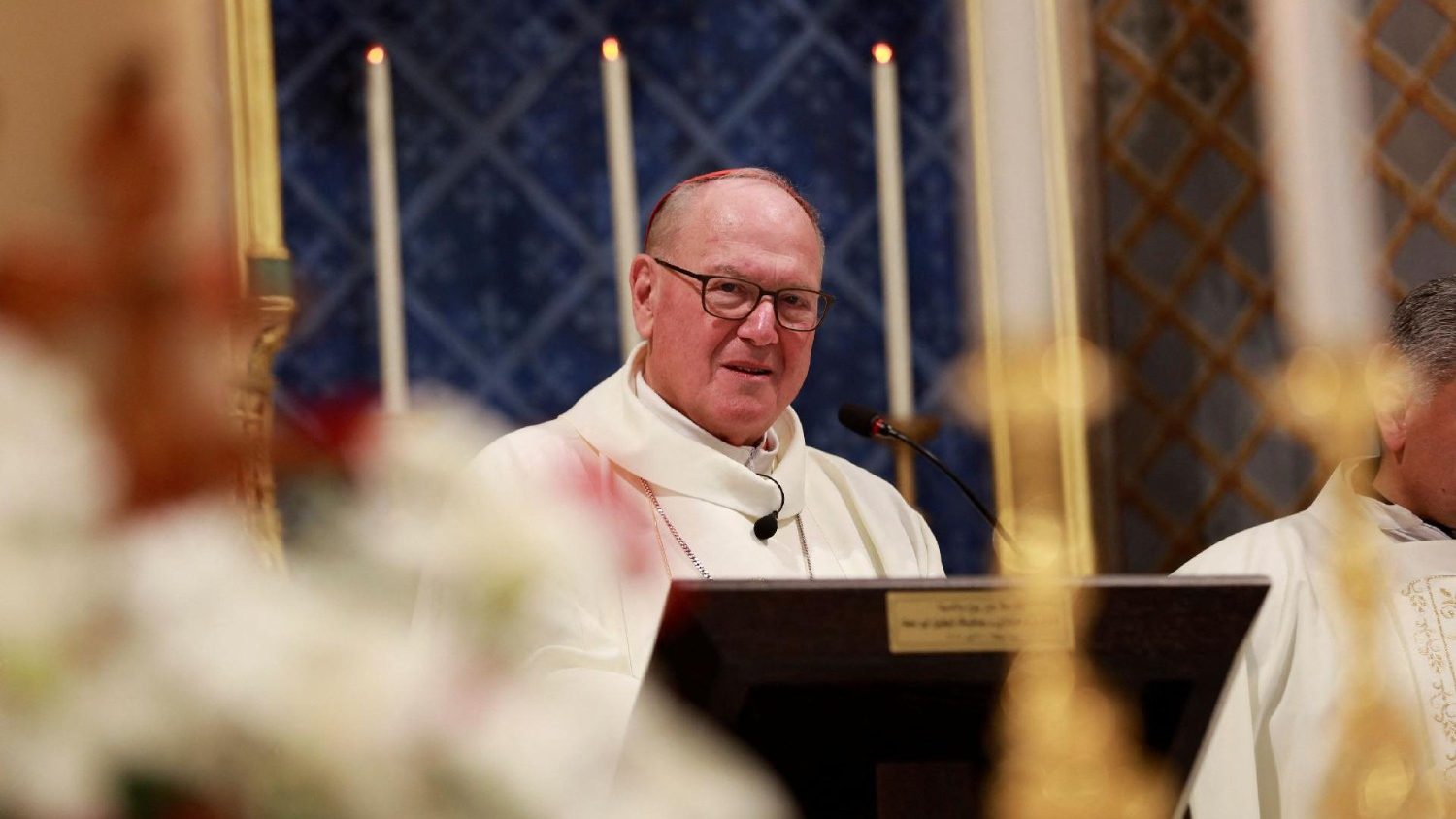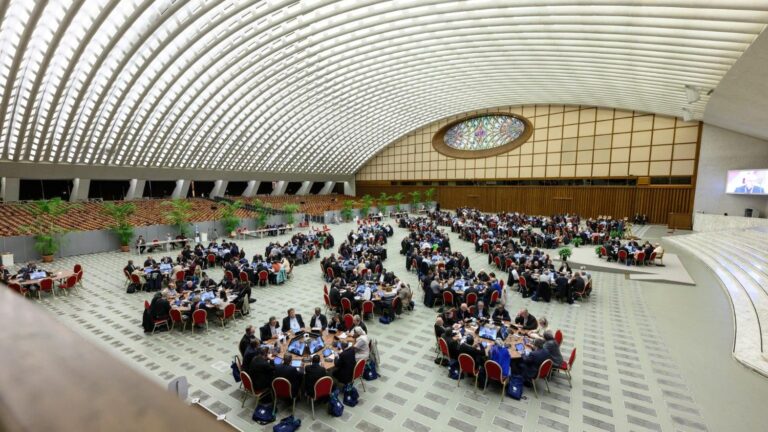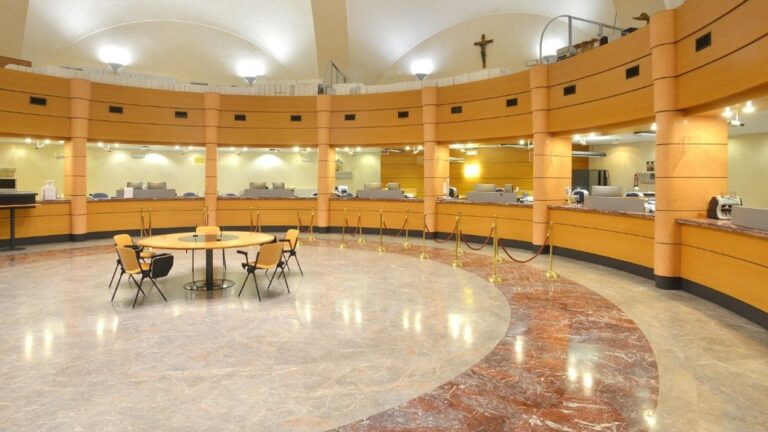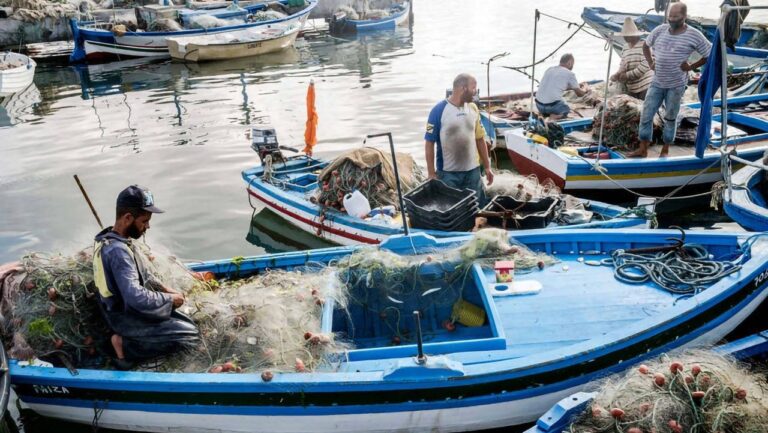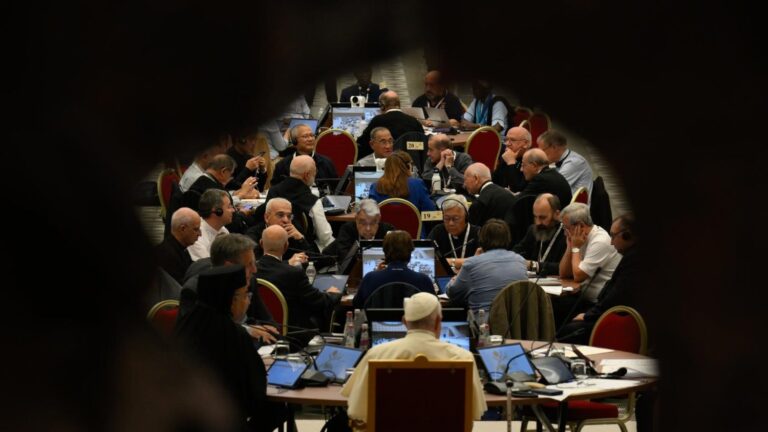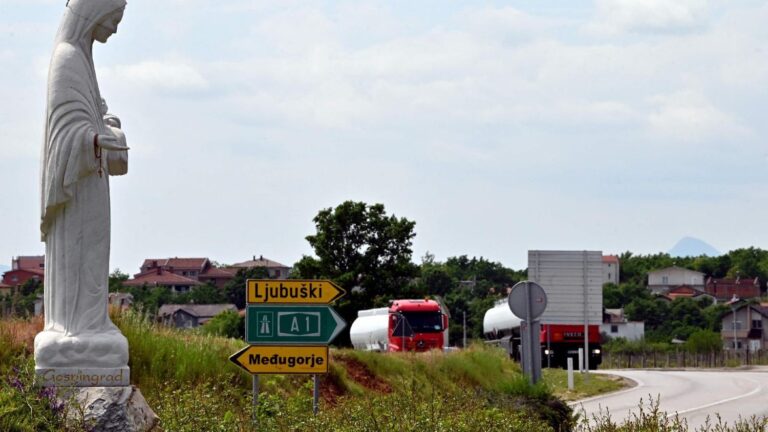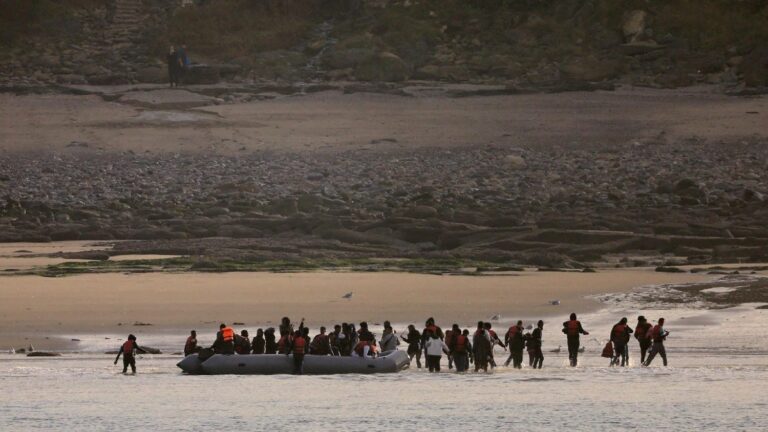Cardinal Dolan marks anniversary of ‘Pontifical Mission for Palestine’
Vatican news
Cardinal Timothy Dolan, Archbishop of New York, was in Jerusalem from April 12 to 18, in his capacity as president of the Catholic Near East Welfare Association. During his visit, he participated in formal meetings and meetings with local Christian communities.
By Roberto Cetera
Cardinal Timothy Dolan, Archbishop of New York, was in Jerusalem from April 12 to 18, in his capacity as president of the Catholic Near East Welfare Association. During his visit, he participated in formal meetings and meetings with local Christian communities.
Interview with Cardinal Timothy Dolan
Your Eminence, what is the purpose of this visit?
We came to Berto for a specific purpose: to celebrate the 75th anniversary of the Pontifical Mission for Palestine, created by Pope Pius XII in 1949 to provide assistance to refugees from the first Arab-Israeli war. She has done and continues to do remarkable work in health care, education and charity, helping small, beleaguered Catholic Christian minorities – a task that involves the tireless work of the Church in North America. North. Remarkable work of bringing people from the Islamic community together; of the Jewish community; of the Christian community.
During these days we met with many communities of different religious beliefs, especially those who care for children, who are those who suffer the most from this conflict that has lasted for 76 years. We go to Bethlehem University, where we meet Israeli students, Islamic students, Christian students – a paradigm of the future society we hope for. We will go to a house for a Casa di Cura this afternoon. And there we will see former Jews, former Islamic and former Christians. As Pope Benedict XVI said, our works of charity, education and health are truly sacramental. And throughout these years, the Pontifical Mission has borne concrete witness to this sacramentality.
You also had important meetings here.
Yes, on Sunday evening I had a pleasant conversation with Palestinian President Mahmoud Abbas. And I was very happy to receive from him and from the President of Israel, President Isaac Herzog, his gratitude and compliments for the pontifical mission. Both appreciate and are both very concerned about the Christian presence. I saw that the Christian communities, and in particular the Catholic community led by Patriarch Pierbattista Pizzaballa, are very appreciated. Particularly in the serious situation that has developed following the attack on October 7, our efforts to always use words of peace and promote a state of mind of encounter are recognized and appreciated far beyond our small communities. Beyond our activities, I have noticed that people welcome the strong voice of Pope Francis. Some criticize him, some are happy with him. But everyone appreciates his strong voice for peace and dialogue.
You also met the Pizzaballa patriarch.
Yes. And we prayed and celebrated together. I am very moved by the Patriarch of the Latin rite and his beautiful homily on Maundy Thursday when he declared that a political solution alone would not be enough to resolve the problem. And an economic resolution alone will not solve the problem. A military solution alone will not solve the problem. The real solution is a renewal of our belief in a common humanity that leads us to recognize that we are all children of God, created in his image and likeness, deserving of dignity and respect. And it is not only the voice of Cardinal Pizzaballa, but also the strong voice of Pope Francis and of the whole Church in which we, as the Pontifical Mission, carry out a precious service for unity and peace: to be light for this world as the Gospel asks us
Your visit to Jerusalem took place at a time of bitter crisis. You could see the flashes of missiles above the holy city last Saturday.
It was very disturbing for us in the middle of the night to be woken up by sirens and then run down here to the pilgrims' guest house. But the next morning, sitting there, I was stunned to find that the buses and trams were full of people heading to work and that everything had returned to a paradoxical normality. On the one hand, I found it tragic because people here are used to something they should never get used to: war. And on the other hand, I thought it was also a great example of resilience in the face of violence and evil. Life must go on and we also came here so that peace continues.
Vatican news
sc
